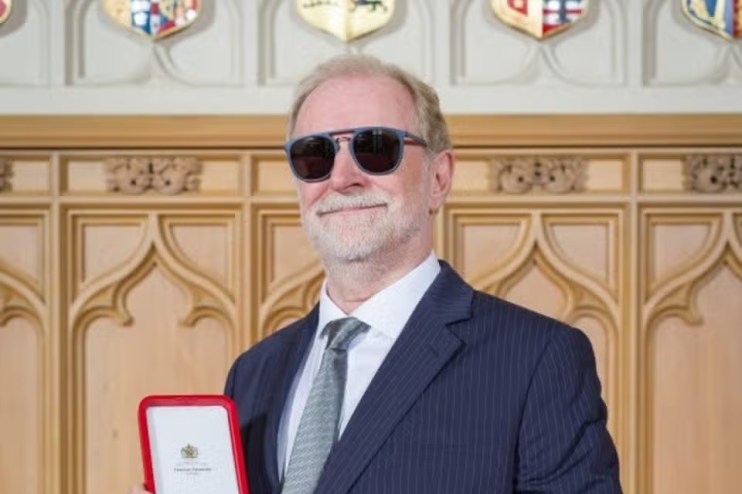The Notebook: Disability inclusion should be a business no-brainer

Prejudices against hiring workers with disabilities is a lose-lose game, writes Sir Robin Millar, the founder of Blue Raincoat Music and chairman of Scope, in today’s Notebook
Making it in the music industry
Each one of us has one thing that we do better than anything else and our obsession must be to find out what it is, then pursue it over every obstacle in our way.
Mahatma Gandhi’s obsession was to win independence for India. He succeeded. Thomas Edison’s was the incandescent light bulb. He failed over 9,999 times before he perfected it.
I thought I wanted to be a rock star and I tried for five years. Then I wanted to be a sound engineer. No one would give a disabled kid a chance. So I took the ferry to France and busked in the Paris Metro until I got a break as a trainee in a studio. Then I realised what I was really good at was directing the recordings.
To succeed as a record producer became my obsession. It took me 10 years of resisting the urge to quit before I found Sade. I called my dad at 3am: “I’ve found this singer and if I can persuade her to work with me, I’ve cracked it Dad!” We went on to sell millions of albums.
If you don’t currently have a definite major purpose, then have a major purpose to find it. Like me, it may not be the first or second or even third thing you try. When you find it you’ll know.
There are many starters in life, but very few finishers – when the going gets tough they quit. I believe that, if you find your major purpose, you’ll never give up; no matter how long and tough the road, you just become more determined.
There will be times when everything in you will tell you to quit. But if you hang in there, eventually, you will – you must – succeed. Quitters never win and winners never quit.
Disability inclusion in the workplace
When I became chair of Scope, the charity which represents 16m people with disabilities, I knew how hard it was to get a job. I’ve never been offered paid employment in 50 years. Previously it was outright hostile discrimination. Nowadays that has mostly gone, replaced by awkwardness and a belief we’re not up to it.
Accenture research last year blew that idea away. It found companies that have led on key disability inclusion criteria saw 1.6 times more revenue, 2.6 times more net income and two times more economic profit than other companies. The more disabled people you employ, the more money you will make.
No surprise to me. We are determined, resilient and resourceful when given a break. It took government intervention to stop pregnancy being the kiss of career death. Do we have to force companies to open their doors to us cane-waving, chair-using, mentally diverse, cochlear implanted weirdos? I hope not – but if it took a law to force businesses to cherish their pregnant colleagues, then maybe we need the same? Imagine taking just one million of us off the dole, into work and paying taxes!
The suited creative
There is an assumption that the creative is a kaftan-wearing poet, incapable of running a bath, let alone a business. The reality is that ingenuity, imagination and determination are all essential to make creativity your career. This is pretty much the same as making it in business. I should know as I built a multi-million pound music business alongside producing hit records. A boardroom without creative minds is a desolate place where good ideas perish on the vine.